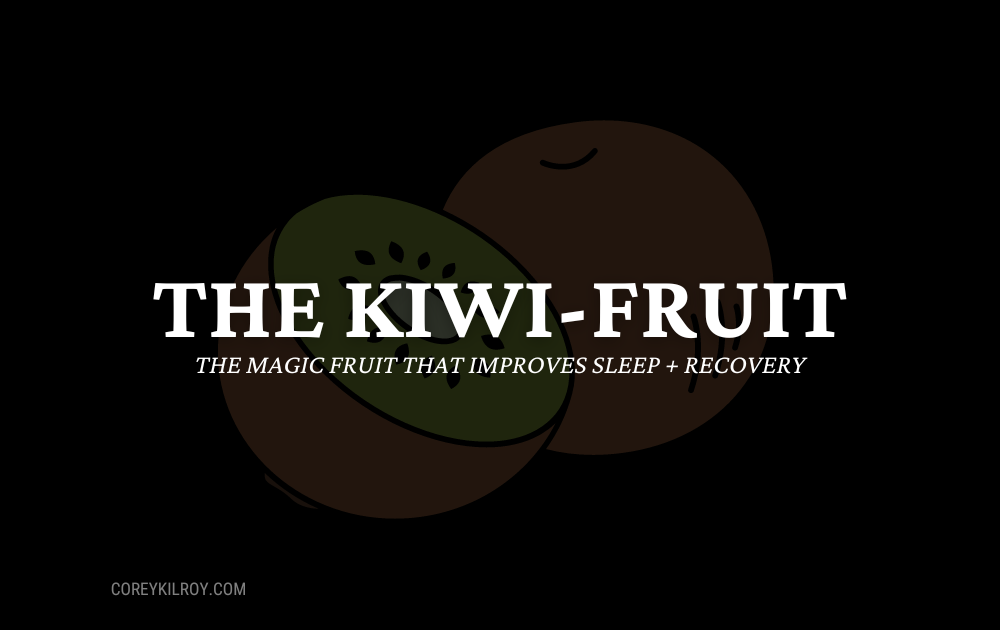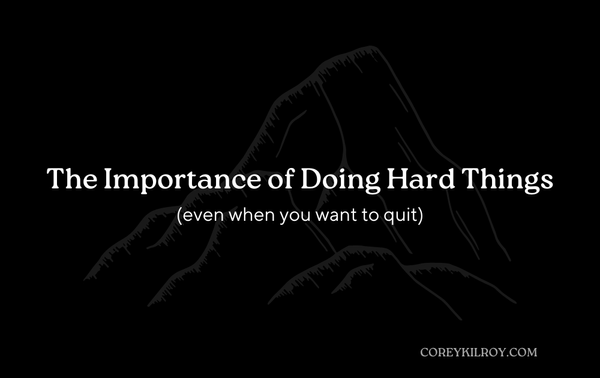Eating Kiwi for a Better Night’s Sleep

I recently stumbled upon a few interesting studies and thought you would enjoy.
A study from 2011 and a recent study from 2023 both found that the Kiwifruit demonstrated a significant improvement in sleep and recovery in adults and elite athletes.
They found that the subjects who ate kiwis significantly increased their total sleep time and sleep efficiency while decreasing sleep latency (the time it takes to go to sleep), while also reducing sleep disturbances.
This is incredibly interesting news, not only for athletes but also for the general population trying to improve their sleep and recovery.
Here’s a deeper breakdown of what I read.
Argument
Many, including myself, would initially argue that these athletes in the study only improved their sleep because the health benefits of consuming fruit are well documented.
Yes, an athlete's sleep could be improved by analyzing and improving their eating habits by, for example, increasing their intake of fruit, vegetables and fish while reducing their intake of processed foods.
Many professionals preach the ‘food first’ approach to athletes and there is scope for investigating food-based interventions designed to promote athlete recovery and/or enhance sleep health.
However, there’s some scientific proof as to why the kiwi plays such a large role in sleep and recovery.
The first of which are antioxidants.
Antioxidants in Kiwis
Antioxidants are commonly consumed by athletes in an attempt to reduce oxidative stress following training.
Kiwis happen to be very rich in antioxidants like vitamins C and E, which can ultimately help reduce inflammation and oxidative stress.
In the 2023 study, “lymphocytes isolated from blood collected from participants demonstrated decreased sensitivity to oxidative attack by (H2O2) in vitro, and endogenous oxidation of lymphocyte DNA was also decreased”.
In short, the reduction of inflammation and oxidative stress due to the antioxidant rich kiwis help aid in recovery. Especially in elite athletes who are beating their bodies up on a regular basis.
Melatonin + Serotonin in Kiwis
Kiwifruit has also been shown to contain melatonin (24 µg/g), which plays an important role in circadian rhythm regulation, i.e., getting to sleep and maintaining sleep are easiest at and after the onset of melatonin secretion.
If you want to learn more about Circadian Rhythms, read my essay on it here.
So instead of popping 12 mg of melatonin a night (please don’t do this), your body will naturally produce 0.1-0.3 mg of melatonin a night plus the melatonin (24 µg/g) from the kiwis.
If you want more information on how to naturally improve your sleep quality, read my essay here.
There was also significant serotonin (5.8 µg/g) content in kiwifruit, which may contribute to improved sleep while the rich antioxidant content may suppress free radical expression and inflammatory cytokines.
💡 NOTE: Serotonin is an end product of L-tryptophan metabolism, which is related to rapid eye movement (REM) sleep and its low levels may cause insomnia.
So the fact that kiwifruit increases Serotonin levels is huge, because it will help increase REM sleep (good) and decrease the chance of insomnia (bad).
Folate Deficiency
Kiwifruit is also rich in folate.
💡 NOTE: Folate deficiency has been linked to insomnia and restless leg syndrome.
Therefore, it’s possible that consuming kiwifruit may be beneficial in improving sleep quality in those who have sleep disorders.
In the end…
By consuming more kiwis, you're helping your body relax and recover, setting the stage for a good night's sleep.
It might be time to start adding kiwis to the grocery list.
Keep Pluggin.
-C.



